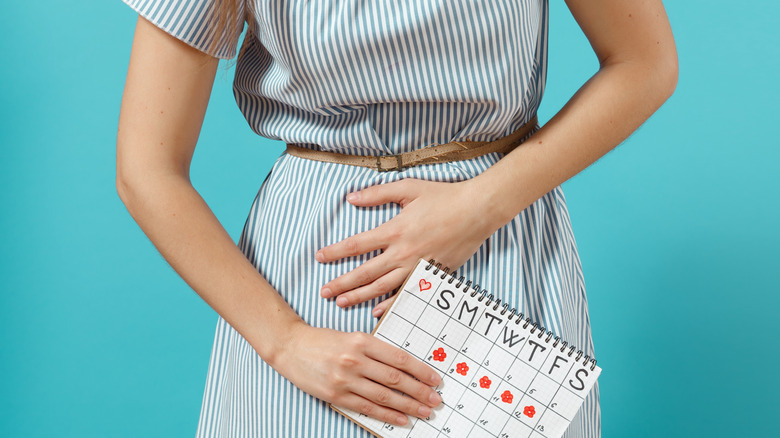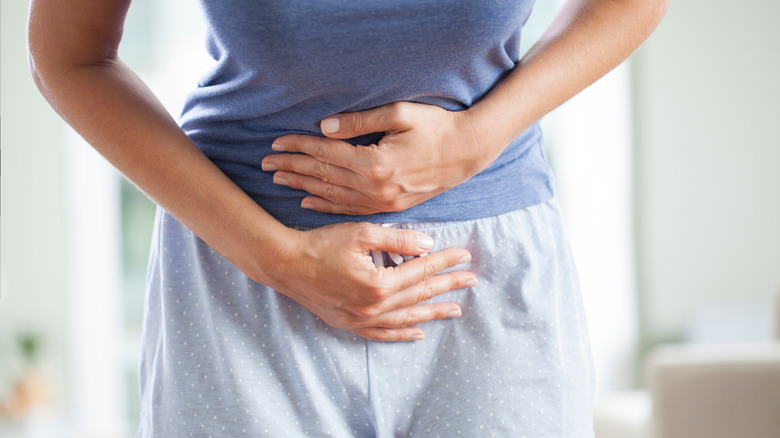What It Really Means When Your Period Is Heavier Than Usual
If you ever have abnormally heavy periods, you may find it reassuring to know that you are not alone. According to the Centers for Disease Control and Prevention (CDC), heavy periods are among the most commonly reported health problems in the United States, affecting at least 20% of American women each year. A period is abnormally heavy if you have clots larger than the size of a quarter or if you need to change your pad or tampon more than once every two hours.
The Office on Women's Health notes that heavy bleeding can be caused by uterine fibroids, uterine polyps, and certain medications such as blood thinners. More commonly, you may have a heavy period if you didn't ovulate in the past month, as this could cause your uterine lining to build up too much. As long as this only happens once in a while, this is not necessarily anything to worry about. In fact, a study from Norway (via PLoS One) found that many healthy women experience anovulatory cycles from time to time. This is particularly common for girls who just started having their periods, and for women who are nearing menopause. Stress, diet, unhealthy body weight, and excessive exercise can also affect whether or not you ovulate, according to Healthline.
Health problems associated with heavy periods
While most heavy periods are harmless, heavy bleeding can have other culprits that may be more concerning, especially if the problem becomes chronic. For example, research suggests that bleeding disorders are a culprit for 1 in 5 white women and 1 in 20 African American women who have heavy periods. Heavy periods may be the only sign of a bleeding disorder for some women. Heavy periods may also be caused by thyroid problems, says The Office on Women's Health. In some cases, heavy bleeding is actually caused by a miscarriage, or an ectopic pregnancy in which the egg implants outside the womb.
The Office on Women's Health recommends calling a doctor if you soak through more than one pad or tampon every hour, you pass clots larger than the size of a quarter, or if your period lasts for nine days or longer. Fatigue, dizziness, weakness, lightheadedness, chest pain, or difficulty breathing during or after your period are also signs you should call a doctor. Even if they are not caused by a dangerous health problem, consistent heavy periods can lead to anemia, a condition that makes it difficult for your blood to carry oxygen through your body.


